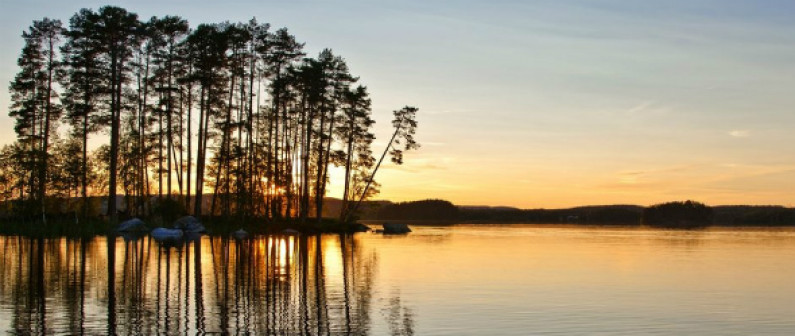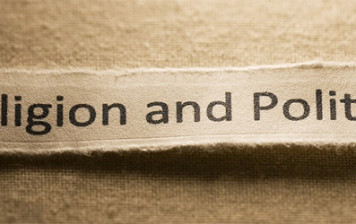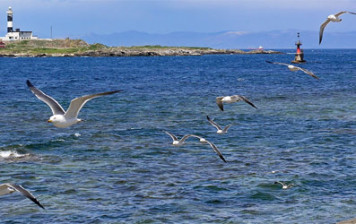
Dogu Ergil
There are some who would like to see the Gulen Movement as an alternative organization to the “state.” Is this realistic?
When Gulen hears this skeptical assessment, he is dismayed, on behalf of the volunteers in this movement who work hard in four corners of the world as representatives of tolerance, that such slanders occur. But, of course, he adds that the real offended party is the volunteers themselves. Gulen believes that the source of the skepticism is this thought: “They are accomplishing something that the state cannot.” In any event, he notes that this skepticism and doubt do not diminish the significance of the things done both for people in general or for Turkey. The habit of expecting everything from the government is neither providing the possibilities to the civil society to display its power and creativity, nor does it allow the hidden synergies of the individual to come into view. He says,
As we think of the friends who carry out these and the chivalry of the people standing behind them supporting, sustaining, and financing the activities of these volunteers, we become stronger, and encouraged. The conscience of the society’s owning up something, if you do certain things, is giving you courage in that matter. You are saying we are not on the wrong track, because it is not possible for a group, which absolutely believes what it is doing is right. Even if a mistake takes place, it would be that of the oligarchic minority which desires to manage everything according to their whims and wishes. Those who are in the habit of calling the beauty an ugly one and considering everything, which do not issue from themselves as ugly and dangerous, are now mistaken. (1)
He believes that those who do not perceive the change or see it as a threat for the regime, dangerous for their power, could do anything in order to protect the status quo which is gradually fading away. For that reason, the [Gulen] movement does not have to struggle only with the inertia of the system, but also with the protectors of the status quo. But he has hope:
Beautiful things are taking place; let those who do not want to see close their eyes. In my opinion, a new prosperous period has started for the Turkish nation. For a long time all the things, which were the signs of fortune in the past, are again emerging one more time, our nation is going toward it. God Almighty is making it realized through the hands of people, people we do not even know their names…. Even if I give advice, this matter went beyond my encouragements ten folds more. There remains the fact that I do not believe I am effective in my advices. Maybe the nation and the people are coming together on the point of its reasonableness. Namely, you say something, let it be promising for the future, and let the people see its fruits, then this nation is flying to it. Therefore this movement has become an integral part of the nation. (2)
If this is the situation, how can the Gülen Movement be an alternative to the state? Gülen replies,
Some say, “You are acting as the honorary ambassadors, counselors, and attachés, are you the alternative to the state? My answer is as follows: If some people are taking care of the business in the places where you cannot reach, you have to only admire and compliment them. That means there was a vacuum there. Regardless of whether they deserve it or not, if these people are filling that vacuum, we should appreciate it; we should stand behind them and support them. (3)
Participants of this movement also are taken seriously in many circles and accepted, raising the concern whether this unofficial group might eventually organize officially and become an alternative to the state; Gülen responds,
For a long time now, as those who are familiar with this poor man know, I reiterated over and over again my respect for the state to a degree of sanctifying it, always with a loud voice. I even received serious criticisms from some on this issue. They said, “Is it that important to make it sacred?” I have to say with all modesty, I know at least a little “what is to be taken as sacred and what is not.” I cannot say I know it perfectly. I also know to whom belongs the sacredness. But I said: “The state is an important institution for the nation. The worst government is better than having no government at all.” I repeated these maybe 30 times: Not accepting the state is the source of anarchy. If you want to do something positive by any means, in the end you have to lean on a state. That is to say, I have said so many things regarding the state; in fact, it is not possible for anyone to say, “Are you going to be an alternative to the state? It is not reasonable. And no one must have the slightest thought, similar to it. If there were such an intention of the participants of this movement, they would have revealed it by now one way or another. For instance, they would have desired politics. For instance, somewhere they would have been after a position in the administration. For instance, they would have desired to be seen and to be known. For instance, they would have had a passion for the world… preferred the blessings of this world. But they have demanded nothing so far. (4)
Furthermore, he proposes something radical in order to eradicate these concerns:
Whatever we are doing, we are doing them for the nation, on behalf of the nation. All of it is for our state. If one day the state says to us, with soldiers and civilians, “Now, take your hands off of this business, we are overseeing this matter,” we would say, “Yes, with pleasure” and would leave quietly. We would think that “Someone is doing it; there is no need for us!” All our friends can declare this in a manly manner as loud as possible everywhere.
No civilian society, no team, no movement, no group should put itself in the place of the state; on the contrary, it should help and support the state. He should try to fill the vacuum somehow left and vacated by the state. While doing this, he should never distance himself from the thought that “I am an element of my state here. I am doing it on behalf of my state.” He should always be behind the state, he should lean on the state, and he should be with the state. But some unjustly and unfairly should not lower the morale of these people who serve on behalf of the state. They should not muddy them; they should not denigrate them. (5)
As a spiritual leader of a civil society and economic solidarity group, Gulen approaches the state without any protective shield. But does he have to be a statist by virtue of that fact? I do not think so. He is so much pressed, pressured, and accused that he gives the impression that he has to exaggerate his assurance that he is ready to account for, has not competed and will not compete with the state, and does he have political ambition.
Source:
Ergil, Doğu. 2012. Fethullah Gülen & The Gülen Movement in 100 Questions. New York: Blue Dome Press. Pages: 177-79
Notes:
(1) “Bu Hareket Devlete Alternatif mi?” (Is this movement an alternative of the state?), http://tr.fgulen.com/content/view/12134/9/
(2) Ibid.
(3) Ibid.
(4) Ibid.
(5) Ibid.
Prof. Dr. Dogu Ergil has received his BA degree in Psychology and Sociology at Ankara University to be followed by an MA degree at Oklahoma University in Sociology (Social Psychology minor) and a Ph D in Development Studies, an interdisciplinary program composed of Political Science, Political Economy and Sociology, at the State University of New York at Binghamton.
He returned to Turkey to teach first at the Middle East Technical University and later at the Ankara University. He became a full professor and the chairperson of the Department of Political Behavior at the Faculty of Political Science of the latter University.
Dr. Ergil wrote twenty-two books, many of which in Turkish. He has contributed many book chapters and articles in many countries and prestigious international journals.
He has been awarded with British Council Fellowship that enabled him to be a visiting Professor at the London School of Economics, the Fulbright Fellowship that gave him the chance of being a visiting scholar at the School of Advanced International Studies (Washington DC). Additionally he was awarded with research fellowships by the Winston Foundation for World Peace and later twice (1999-2000 and 2005-2006) by the National Endowment for Democracy (Reagan-Fascell Democracy Fellowship). The New School for Social Research University in New York has also honored him with the renowned “University in Exile” democracy and human rights award in 2000.
Tags: Gulen Movement | Hizmet and Politics |Related Articles

Fethullah Gülen’s view on mixing politics and religion
Politicizing religion is always a reductionist endeavor: it turns the mysterious relationship between humanity and the Divine into an ideology. Gülen says, “Religion is the relationship between people…

Is the Gülen Movement a cult?
The Gülen Movement is not linked to any sectarian tradition or affiliation. Networking, participation and affiliation in the Gülen Movement are not exclusive, alienating and sectarian because the…

What you should know about Hizmet
There are three things non-Muslim Poconovians should know about Gülen’s movement. First, Gülen rejects a jihad of violence as promoted by the Taliban, Al-Qaeda and ISIS in the…
